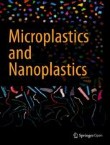Prof. François Galgani Laboratoire Environnement Ressources Provence-Azur-Corse (PDG-ODE-LITTORAL-LERPAC), France Editor of Microplastics and Nanoplastics |
How have you and/or do you work directly to address Sustainable Development Goal 6: Clean Water and Sanitation?
As an oceanographer, I am focusing on SDG 14.1.1 (marine pollution/ plastics pollution). Clear water (SDG 6) is, however, a prerequisite for a clean ocean (SDG14). The story has shown that the work done for the oceans (methods, degradation, fate, impacts, etc.), helps a lot for freshwaters.
What do you think is the most relevant way to measure success against this goal in your field?
Improve, upscale, develop the Tertiary (specific to each pollutant) treatment in Waste Water Treatment Plants, to clean/reuse waters and limit pollution and human health impacts. Treatment of water for microplastics is an example, and a challenge for the years to come, as MPs represent a substantial part of drinking waters and a pathway for ingested microplastics by human and
What do you think is the most productive way that researchers can engage policy-makers? What has your experience been with policy engagement?
Providing background information (amounts, distribution, fate, modelling, degradation, impacts, etc.), implementing coordinated monitoring to support reduction measures that must be legally bound, and finding original solutions (new 100% recyclable materials, fast detection, etc.).
What does public engagement look like in your field and how important do you think it is for researchers to make a societal impact with their work?
When relevant, information on any progress made in the field, about understanding, solutions, reduction tools, policies, etc. must be made available to the general public, because plastic pollution is simple to understand, visible, and is everyday's life. It must be noted that the public is very receptive, and research on Plastic pollution is incredibly supported by the public. This largely links with the work done by NGO's and citizen science, which is much appreciated and typical of this research topic.
What are the short- and long-term goals of your work?
It never ends, but established global monitoring of plastic pollution in the oceans and waters, the full understanding of the cycling of plastic in the environment and, for the long term, zero inputs in waters, are relevant goals.
What progress would you like to see next towards addressing SDG6?
No more chemicals, nor microplastics, in drinking waters and fish!
